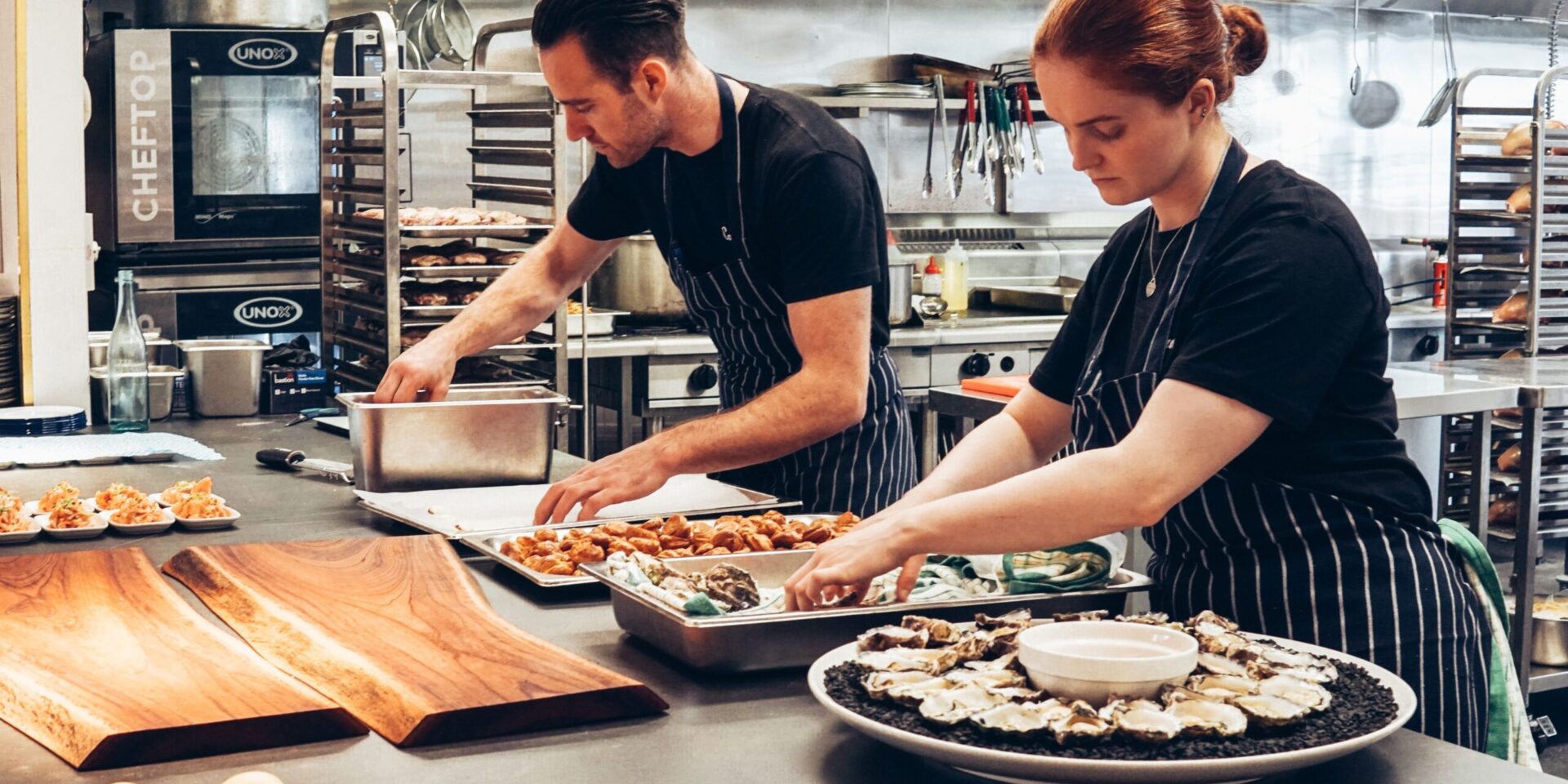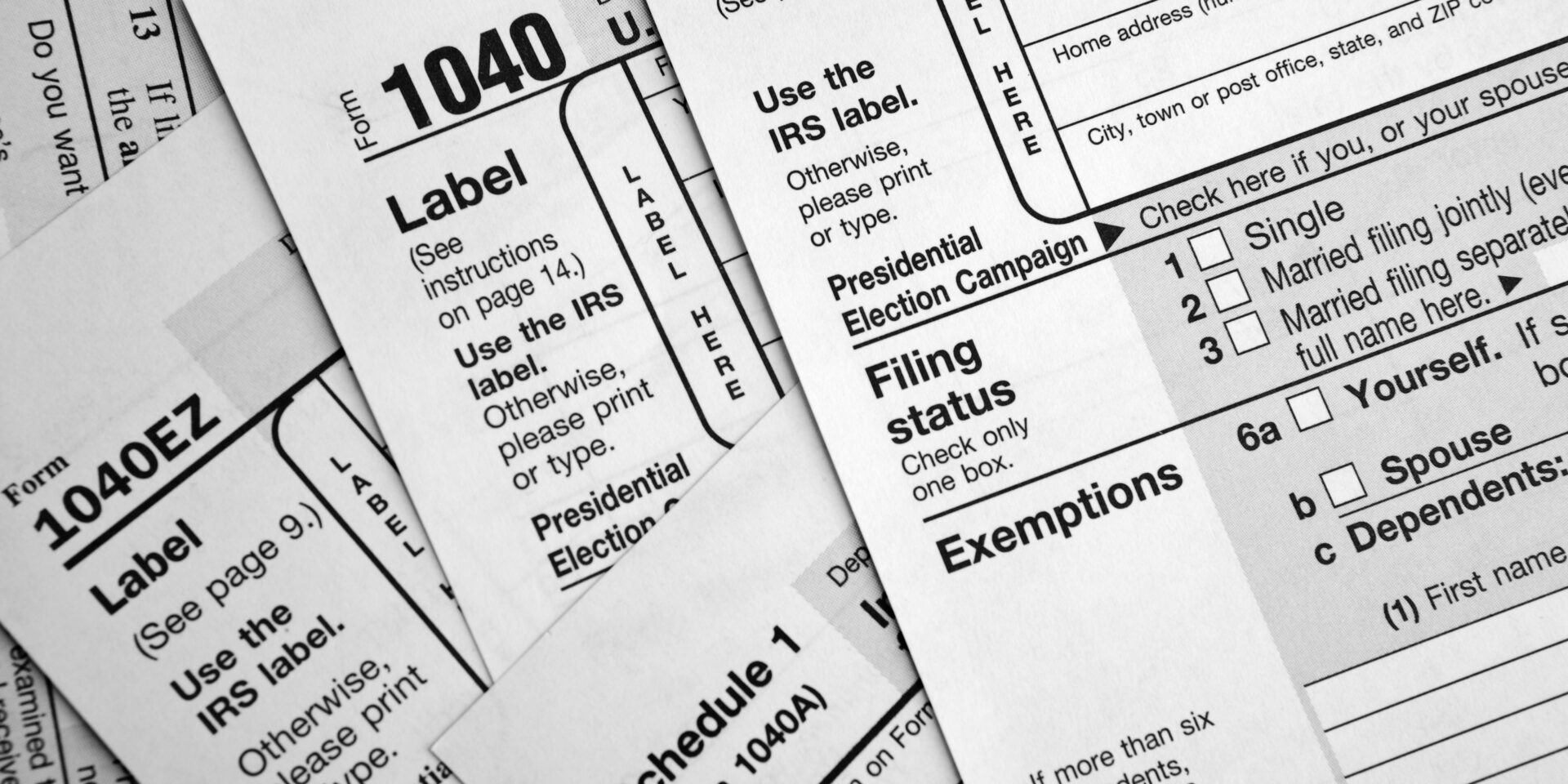Language:
How to Start a Catering Business

A catering company is all about preparing and delivering food for events and parties while providing excellent hospitality for guests.
So if you have a passion for food and a knack for business, starting a catering business may be a great career choice for you.
But where do you start?
In this article, we’ll go over the key steps of starting a catering business — from developing a solid business plan to creating a strong marketing strategy.
Read on to learn the steps to turn your love of food into a successful and profitable business.
Types of Catering Businesses
Before we dive into the details of starting a catering business, let’s explore the different types of catering businesses.
This will be essential for you to choose the type of catering business you want to start and what best suits your current situation and goals.
Below you will find the most common types of catering businesses.
Full-Service Catering
Full-service catering is a type of catering company that provides a full range of services — including food and beverage preparation, delivery, and on-site hospitality.
This type of catering is ideal for large events and weddings because it offers guests a more personalized experience.
Full-service caterers typically provide a full team of staff, including waiters, bartenders, and chefs, to ensure the event runs smoothly and all guests are well taken care of.
In addition to providing food and beverage services, full-service caterers also offer event planning and coordination services. This ensures that all aspects of the event are executed seamlessly.
Drop-Off Catering
Drop-off catering is a type of catering where prepared meals are delivered directly to the customer. This can be a good option for smaller events, such as family gatherings or office parties where full-service catering isn’t necessary.
Drop-off catering is typically less expensive than full-service catering because the caterer doesn’t have to provide service for the food and beverage with a full staff.
Instead, the customer simply receives the prepared food, which they can arrange and serve themselves.
Event Catering
This type of catering requires a more extensive range of services than drop-off catering or full-service catering.
Event caterers must provide everything needed to serve a large group of guests, including food, beverages, and staff.
They also have to coordinate with event planners, set up and decorate the catering area and make sure everything runs smoothly during the event.
Due to the size of the events they cater, event caterers need a larger team of staff and extensive equipment to provide guests with a seamless and memorable experience.
Steps to Start a Catering Business
1. Develop Your Business Plan
Developing a comprehensive business plan is an important first step in starting a catering business. Your business plan should include a detailed overview of your business and its goals, as well as a financial plan to cover your start-up costs and ongoing expenses.
This includes everything from equipment and supplies to employee salaries. Moreover, it outlines a marketing strategy for attracting customers — including the types of events you plan to offer and how you’ll reach potential customers is key.
Finally, your business plan should outline how you’ll manage day-to-day operations, such as how you’ll manage inventory, track sales and supervise your staff.
With a solid business plan, you can set your catering business up for success from the get-go.
2. Choose a Business Name
Choosing the right name for your catering company is a crucial step in establishing your brand and creating a strong public image.
The name of your business should be memorable, easy to pronounce, and fit the services you offer. It should also convey a sense of professionalism and quality that will set you apart from the competition.
When choosing a name, you should check if the domain name and social media handles are available. This will help you ensure that your online presence is authentic and consistent.
A good business name can help you establish a strong brand and attract customers, so take the time to choose a name that accurately reflects your business and its values.
3. Create the Menu
The quality of your food will greatly determine the success of your catering business.
So your menu should reflect your culinary knowledge and the type of events you plan to host.
An example menu might include:
- Appetizers like bruschetta and fried shrimp with garlic aioli
- Main dishes like grilled salmon or chicken piccata
- Side dishes such as roasted vegetables and truffle fries
- Desserts like mini panna cottas or cream puffs
Considering a pricing strategy will also be beneficial when it comes to making a menu — taking into account the cost of ingredients and labor.
4. Determine Pricing
Setting the right pricing for your services is an important step in ensuring profitability and long-term success for your catering business.
To set your prices, you’ll need to factor in the cost of ingredients, labor, and overhead costs such as rent, utilities, and equipment.
This will give you definitive goals for your profit margin and how you’ll want to charge your clients accordingly.
It’s also important to consider the prices of other caterers in the area to make sure your prices are competitive.
In addition, creating a pricing structure that’s easy for customers to understand, such as offering packages for different types of events or price per person is also worth noting.
5. Decide on Your Business Structure
Your business structure determines your legal obligations, as well as your tax compliances. Entity options range from sole proprietorships, partnerships, limited liability companies (LLCs), and corporations.
Each has its own advantages and disadvantages, and the choice you make will depend on your personal preferences and business goals.
It’s important to carefully consider each option and consult with a registered agent or an accountant to determine which business structure is right for your catering business.
Below you’ll find the main types of business structures people choose to start their catering businesses.
Sole Proprietorship
A sole proprietorship is a form of business in which an individual owns and operates the business. It is the simplest and most common form of business and requires minimal paperwork and legal fees.
The owner has complete control of the business and retains all profits. However, the owner is also personally liable for debts or legal problems and may have limited funds for financing or expansion.
Sole proprietorships are generally best suited for small, low-risk businesses with minimal legal and financial obligations.
General Partnership
A general partnership is a type of business in which two or more people share ownership and operation of a business. Partnerships are also easy to form and do not require a lot of paperwork or legal fees.
Each partner contributes capital, labor, or expertise and shares in the profits and losses of the business.
However, partners are personally liable for any debts or legal problems that may arise from the partnership. Partnerships are best suited for businesses where the partners share a common goal and can work cooperatively toward it.
Limited Partnership
A limited partnership is a type of business in which there are two types of partners: general partners and limited partners. General partners operate and manage the business and are personally liable for any debts or legal problems.
Limited partners are investors who do not participate in the day-to-day operations of the business and have limited liability. They are only liable for the amount of their investment in the partnership.
Limited partnerships can be a good option for businesses that need significant capital investment because limited partners can provide funding without being personally liable for the business’s debts or legal problems.
That said, forming a limited partnership can be complex and costly — requiring the drafting and filing of a formal partnership agreement.
Limited Liability Company
A Limited Liability Company (LLC) is a hybrid business formation that combines the liability protection of a corporation with the tax advantages of a partnership.
LLCs provide their owners with personal liability protection that shields them from debt or legal problems that may arise for the business. They also offer a more flexible management structure than corporations and require less formal paperwork.
Forming an LLC can be more expensive than forming a sole proprietorship or partnership, and it requires more paperwork and ongoing maintenance. LLCs are best for businesses that need liability protection but want to maintain a more flexible management structure.You can read more about how to start a LLC here.
C Corporation
A C corporation (C-corp) functions as a separate legal entity owned by shareholders and governed by a board of directors. C-corps provide limited liability protection to their owners, meaning that shareholders are not personally liable for the corporation’s debts or legal problems.
They also offer more opportunities for financing through the sale of stock and can provide tax advantages to the corporation.
Nevertheless, C-corps require more formal documentation and may be subject to double taxation of profits. This makes C-corps more suitable for larger businesses that require substantial funding and a more formal administrative structure.
S Corporation
An S Corporation (S-corp) is a type of business that is taxed similarly to a partnership but still provides its owners with protection from personal liability.
S-corps allow profits and losses to be passed through to shareholders without being subject to corporate income tax, thus avoiding double taxation. They also provide owners with personal liability protection, shielding them from lawsuits or litigation.
However, S-corps have strict eligibility requirements and may have limitations on the number of shareholders and types of shares they can issue.
You can read more about business structure and their functions here.
6. Apply for Business Registration and Licenses
Once you have decided on a business structure and name, you will need to register your
catering business and obtain all necessary licenses and permits.
Depending on where your business is located, you may need a business license, food service license, liquor license, or health permit.
You will also need to comply with all state and local food safety and handling regulations and requirements. This may include registering with the health department or obtaining a food handling certificate.
Failure to obtain the necessary licenses and permits can result in fines or legal problems.
So, it’s important to be well-informed and make sure you are complying with all relevant regulations.
7. Get Insurance
Proper insurance coverage is critical to protect both your catering business and your personal assets.
The type of coverage you need will depend on the size and scope of your business, but in general, you should purchase general liability insurance.
This type of coverage will protect you if someone is injured or their property is damaged by your business operations.
You should also consider insurance for your personal and business property — including equipment and supplies, as well as any vehicles you use for your business.
With the right insurance coverage, you can have peace of mind and protect yourself from potential financial loss in the event of an accident or lawsuit.
8. Work on Your Finances
When it comes to financing, having a clear goal and a solid business structure is fundamental to running a successful catering business.
You will need to create a detailed financial plan and take into account your start-up costs, current expenses, and anticipated revenue.
In addition, you may need to consider financing options such as business loans or grants to cover start-up costs or support expansion.
By carefully managing your finances, you can set your catering business up for success and long-term growth.
Open a Bank Account
A business bank account allows you to keep your personal and business finances separate. This makes it easier to track your income and expenses, monitor cash flow and prepare tax returns.
Having a separate bank account can also increase your credibility for lenders and business loans. Plus, having a business bank account helps to protect your personal assets in case of legal or financial problems.
It is recommended to choose a reputable bank and keep accurate records of all transactions to ensure your finances are managed effectively.
Get Funding if Necessary
If you need additional funding to start or expand your catering business, there are several options readily available.
You may be able to obtain a business loan from a bank or other financial institution that will provide you with the necessary capital to cover start-up costs.
You can also explore the possibilities of private equity investors or angel investors who may be partial to investing in your business in exchange for a share of the profits.
You can inquire about grants or loans offered by government agencies or nonprofit organizations that support small businesses.
Save for Emergencies
Equally important as managing your finances and raising funds is setting aside money for emergencies.
An emergency fund is a separate account where you keep the money to cover unexpected expenses such as emergency repairs, unexpected delays, or other unforeseen costs.
With an emergency fund, you can avoid cash flow problems and keep your catering business running smoothly, even under difficult circumstances.
It’s a good idea to set a target amount for your emergency fund and make regular contributions to build up your savings over time.
9. Buy the Equipment
The specific equipment you will need may vary depending on the size and scope of your business. But generally, you may want to consider investing in the following for your catering business.
- Cooking equipment: Ovens, stovetops, grills, and fryers
- Refrigeration equipment: Refrigerators and freezers
- Mobile bar: Liquor rack, foldable bar table, and stools
- Food prep equipment: Cutting boards, knives, and mixing bowls
- Serving equipment: Chafing dishes, serving trays, and utensils
- Tableware: Plates, bowls, and glasses
- Beverages: Beverage dispensers and coffee makers
- Transport equipment: Insulated food carriers and food delivery bags
- Safety equipment: Fire extinguishers and first aid kits
Investing in high-quality equipment can help you prepare and serve food more efficiently — providing a better experience for your clients and helping your catering business build a strong reputation for itself.
10. Build Your Team
The employees you hire are responsible for providing quality food and service to your customers and representing your company to the public.
So it’s paramount to hire and train employees who have a passion for food, excellent communication skills, and enlightened hospitality — and are dedicated to providing top-notch service.
Not only is it important to hire the right people, but it’s also important to provide ongoing training and support, ensuring your team is equipped with the necessary skills and knowledge to provide the best service possible.
11. Market Your Catering Business
One of the most important steps for starting a catering business is to build a strong online presence by having a solid marketing strategy.
On your website, you should showcase your services, menu, and prices — making it easy for customers to contact you to inquire about your catering services.
Food is visually appealing, so your social media profiles should show photos of your food, promotions, and events you have hosted.
Additionally, another way to market your catering business is to attend expos, trade shows, and other networking events.
This will allow you to build relationships with other professionals in the industry as you showcase your services and reach out to potential clients.
Setting the Table for Heightened Hospitality
To make your catering business successful, it’s important to pay attention to every aspect of the customer experience, from the food you serve to the service you provide.
By hiring the right team, investing in quality equipment, and implementing a strong marketing strategy — you can build a stellar reputation and attract more customers over time.
To ensure your finances are in order, consider doola Bookkeeping services so you can primarily focus on providing the best hospitality.
Our expert guidance and support will keep your finances on track and keep your catering business compliant and organized.
FAQs
How much does it cost to start a catering business?
Starting a catering business typically ranges from $10,000 to $50,000 or more for initial startup costs such as equipment, licensing, insurance, and marketing.
What licenses are needed to start a catering business?
A catering business generally needs a food service license, business license, and health permit — as well as compliance with state and local regulations for food safety and handling.
Is catering a profitable business?
A catering business can be a lucrative venture as long as you implement quality service, delicious food, and strong marketing strategies.
Is catering more profitable than restaurants?
Catering businesses may have lower overhead costs and higher profit margins per event, while restaurants can have more consistent revenue streams and the potential for long-term growth.
Is catering a good side hustle?
Catering can be a good side hustle for individuals with a passion for food, beverage, and hospitality — earning extra income in their spare time.
Keep reading
Start your dream business and keep it 100% compliant
Turn your dream idea into your dream business.















